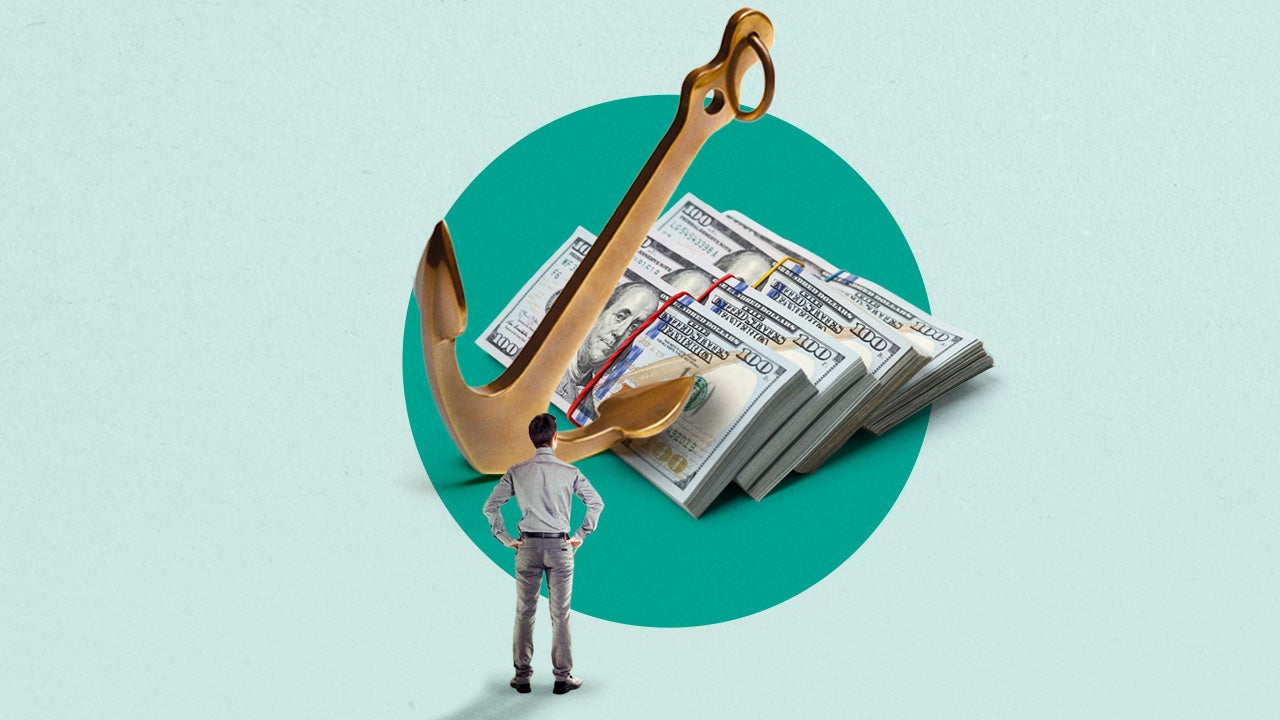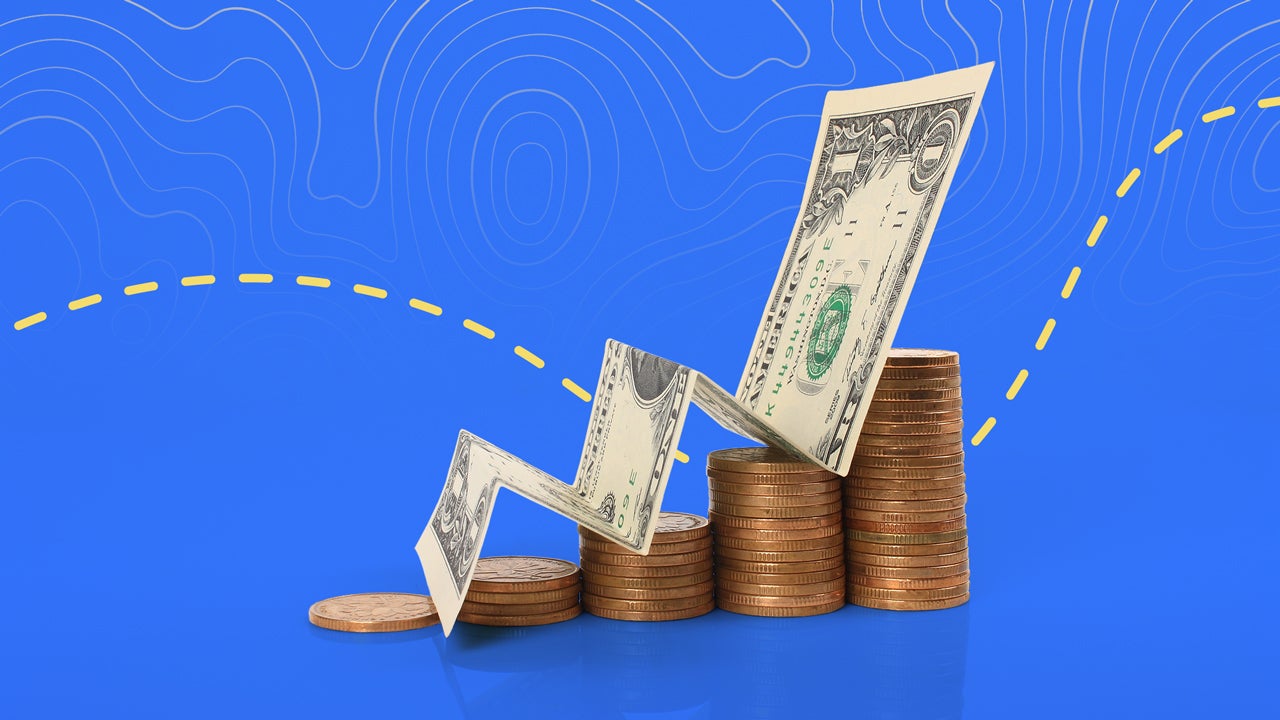6 top tips for choosing the best CD for your money




Key takeaways
- The best certificate of deposit (CD) rates are currently above 4 percent APY, offering guaranteed returns that outpace inflation.
- CD terms range from one month to 10 years, with online banks typically offering rates two times higher than the national average.
- Early withdrawal penalties can range from 60 days to 365 days of interest, making it crucial to pick the right term.
- Now is an optimal time to lock in high CD rates before the Federal Reserve’s rate cuts significantly decrease them.
If you’re looking to grow your savings with a guaranteed return, 2025 has presented an excellent opportunity. The best CD rates are currently above 4 percent APY and outpacing inflation, but this window won’t last forever. With the Federal Reserve cutting its target rate and more cuts expected, annual percentage yields (APYs) are already dwindling and will likely decrease further. Locking in today’s high CD rates could be one of the smartest financial moves you make this year.
A certificate of deposit offers a fixed interest rate in exchange for keeping your money deposited for a specific term. Unlike savings accounts with variable rates, CDs provide predictable returns that make it easier to plan.
The key is choosing the right CD that aligns with your financial goals, timeline and risk tolerance.
Why invest in CDs right now?
CDs offer one of the lowest-risk places to grow your cash while providing stable, predictable returns. Here’s why they deserve a place in your savings strategy.
- Guaranteed returns in an uncertain market. While stock markets can fluctuate daily, CDs offer completely predictable earnings. You’ll know exactly how much interest you’ll earn and when you can access your funds, making budgeting and financial planning straightforward.
- Higher yields than traditional savings accounts. Many online banks are currently paying CD rates that are more than two times higher than the national average. This rate advantage makes CDs particularly compelling for money you won’t need immediate access to.
- Protection against your own spending impulses. The early withdrawal penalties associated with CDs can actually work in your favor by discouraging impulsive spending. When you know withdrawing early will cost you months of interest earnings, you’re more likely to leave your savings untouched.
When CDs make sense
“I recommend CDs when you have a specific savings goal with a set timeline. For example, if you’re saving for a wedding in 18 months, a CD can lock in today’s high rates while ensuring your money is available exactly when you need it. Just make sure you won’t need the funds before the term is up to avoid penalties.”
— Hanna Horvath, CFP & Bankrate Banking Editor
Additional benefits include FDIC or NCUA insurance protection up to $250,000 per depositor at federally insured banks or credit unions, respectively, and the ability to create steady income streams via a CD ladder.
Tips for choosing the best CD
Before committing your money to any CD, it’s crucial to look ahead and determine your financial goals. Equally important is ensuring you have adequate emergency savings — typically three to six months of living expenses — in a more accessible account before tying up funds in a CD.
1. Decide the right term length
Keep in mind: CDs require that you invest your money for a specific amount of time, called a term. During this period, you agree not to withdraw the money without paying penalties.
CD terms span from as brief as one month to as long as 10 years, with most banks offering options between three months and five years.
Consider your specific savings goals: Are you saving money for a down payment on a house in two years? A vacation next summer? Your child’s college tuition in three years? Choose a CD term that matches when you’ll actually need the money.
Unsure about the right term length? Use Bankrate’s CD calculator to compare potential earnings across different terms and find the optimal timeline for your goals.
2. Shop for the best rates
Rate shopping can dramatically impact your earnings.
The national average for one-year CDs is just 1.9 percent APY according to Bankrate data, but top-performing banks are offering rates above 4 percent APY — over two times higher.
Online banks frequently offer the most competitive rates because they don’t maintain expensive branch networks. This operational efficiency allows them to pass higher yields on to customers. Similarly, credit unions often offer higher rates because they focus on serving their member-owners, and many are easy to join.
Money tip: Don’t limit yourself to your current bank. Even a 1 percentage point difference can substantially impact your earnings over time, so shop around.
3. Pick a CD with a minimum deposit you can afford
Financial institutions differ on the size of the deposit required to open a CD. Some banks, such as Ally Bank and Synchrony Bank, require no minimum deposit, making CDs accessible to any saver. However, many traditional banks require initial deposits of $500, $1,000, or even $5,000 or more.
Jumbo CDs, which typically offer slightly higher rates, often require deposits of $100,000 or more. The minimum deposit requirement may also vary based on the specific CD type you choose, so factor this into your decision-making process.
4. Check for early withdrawal penalties
This is perhaps the most critical factor many savers overlook. Early withdrawal penalties can range from 60 days of interest to 365 days or more, and these penalties typically increase with longer CD terms.
While penalties discourage early withdrawals, sometimes breaking a CD early can be worth it if interest rates rise significantly. Learn how to avoid CD early withdrawal penalties through proper planning and alternative strategies.
5. Choose the right type of CD
The CD market offers more variety than many savers realize, and understanding your options can help you find the perfect fit. Outside of traditional CDs, here are some other common types of CDs:
- No-penalty CDs allow you to withdraw your money before the term is up without penalty, though they typically offer lower yields in exchange for this flexibility. These CDs can be ideal if you think you might need access to your money or want the option to move your money to higher-yielding investments.
- Add-on CDs let you make additional deposits during the term, which can be valuable if you expect bonuses or other lump-sum income. However, these are relatively rare and often carry lower yields
-
Step-up and bump-up CDs allow you to capture higher rates if interest rates rise during your term. Given current rate expectations, these aren’t particularly attractive right now, but they’re worth understanding for the future.
6. Make sure you’re doing business at a federally-insured bank or credit union
Only open CDs at banks and credit unions protected by federal insurance. For banks, look for FDIC (Federal Deposit Insurance Corporation) protection; for credit unions, ensure NCUA (National Credit Union Administration) coverage.
Federal deposit insurance covers up to $250,000 per depositor, per institution, per account ownership category. Some banks offer network programs that spread large deposits across multiple insured institutions to provide additional coverage for high-net-worth savers.
You can use this tool to find FDIC-member banks or this tool to find NCUA-member credit unions.
Bottom line
A well-chosen CD can provide risk-free returns when you’re able to commit funds for a specific term. To maximize your returns, shop extensively for the best rates, choose a term that aligns with your timeline and make sure you’re working with a federally insured institution.
With today’s elevated CD rates, acting quickly could help you lock in returns that may not be available much longer. The key is matching your choice to your specific financial situation and goals.
Ready to start earning more on your savings? Compare Bankrate’s top CD offers to find the best rates available today.
Why we ask for feedback Your feedback helps us improve our content and services. It takes less than a minute to complete.
Your responses are anonymous and will only be used for improving our website.




